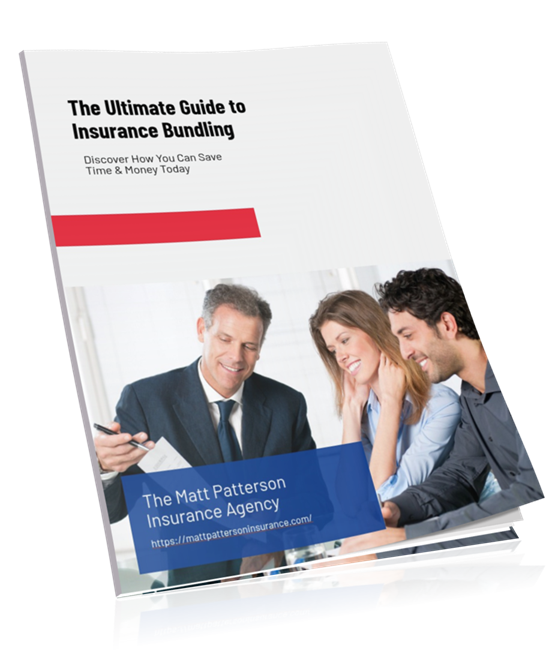The short-term rental market is expanding rapidly, with projections estimating it will reach $837.95 billion by 2029. This growth reflects increasing traveler preference for vacation rentals over traditional hotels. If you host through platforms like Airbnb, Vrbo, or Booking.com, knowing the specifics of New Braunfels home insurance options and insurance plans for Airbnb & short-term rentals becomes integral.
Standard home insurance policies often do not cover the unique risks associated with short-term rentals. Injuries to guests, accidental property damage, and potential income loss require specialized protection. While major platforms offer some form of host insurance, these coverages come with significant limitations – such as excluding your personal belongings or certain types of liability.
Investing in dedicated short-term rental insurance or vacation rental insurance helps fill these gaps. It safeguards your property and finances against risks that arise from hosting guests frequently and managing turnover in a dynamic rental environment.
Table of Contents
Insurance Needs for Short-Term Rentals
When it comes to insurance for short-term rentals, there are some important differences between various types of policies:
1. Differences Between Policies
Homeowners (HO-3) and landlord (DP-3) policies usually don’t have coverage specifically designed for short-term rental situations.
2. Exclusions in Standard Policies
These traditional policies often do not cover rental activities, which puts hosts at risk for issues that can come up with having different guests all the time.
3. Role of Commercial Insurance
To protect themselves from guest injuries, property damage, legal responsibilities, and lost income from cancellations, hosts need commercial general liability insurance or special short-term rental insurance.
By knowing these details and limitations in regular homeowners and landlord policies, hosts can take action to get complete protection that fits the ever-changing nature of short-term rentals.
Platform Insurance vs. Specialized Short-Term Rental Insurance
Overview of Platform Insurances
Major platforms like Airbnb, Vrbo, and Booking.com provide coverage for hosts through their respective insurance programs: AirCover, Host Insurance, and Partner Liability Insurance. However, it’s important to note that these policies often have limitations and exclusions. For example, they may not cover host personal property or certain types of damages.
Risks of Solely Relying on Platform Insurance
While platform insurance can offer some level of protection, it shouldn’t be the only line of defense for hosts. Depending solely on platform-provided insurance may leave hosts exposed to gaps in protection. Hosts should understand what is and isn’t covered by these policies to adequately safeguard their properties.
Advantages of Specialized Short-Term Rental Policies
To fill the gaps left by platform coverage, hosts should consider obtaining additional specialized short-term rental insurance. These policies are designed specifically for the unique risks associated with short-term rentals and offer more comprehensive protection.
Here are some key advantages of specialized short-term rental policies:
- Guest-related damages coverage: Unlike platform insurance, which may have limitations on guest-caused damages, specialized policies typically provide broader coverage for such incidents.
- Liability protection for hosts: In case a guest files a lawsuit or makes a claim against the host, specialized insurance can offer liability protection beyond what is provided by platform coverage.
- Coverage for unforeseen events: Short-term rental properties can face various unexpected situations like natural disasters or accidents. Specialized policies often include provisions for these types of events as well.
Key Coverage Areas in Short-Term Rental Insurance Policies
Short-term rental insurance must address a unique set of risks beyond those covered by standard homeowners or landlord policies.
1. Liability coverage
Protects you against claims from guest injuries or third-party incidents occurring on your property during a stay. Liability protection covers medical expenses, legal fees, and settlements if you are found responsible.
2. Guest-caused property damage
Covers both accidental and intentional damage caused by renters. This includes broken furniture, stains, or vandalism that can otherwise leave you with costly repairs.
3. Natural disasters coverage
Many basic policies and platform insurance programs exclude damage from floods, earthquakes, or wildfires. Specialized short-term rental policies often include protection from these perils to safeguard your investment against environmental risks.
4. Income loss due to cancellations or repairs
If your rental becomes uninhabitable because of damage requiring repair, this coverage compensates for lost rental income during the downtime. It’s vital for hosts relying on rental revenue as part of their income.
5. Common exclusions hosts should know:
- Personal belongings of the host typically are not covered under short-term rental policies.
- Damage intentionally caused by pets may be excluded.
- Injuries caused by the host or household members usually fall outside liability protection.
Legal Compliance and Financial Protections in Short-Term Rentals
Understanding and following the laws regarding security deposits is crucial for hosts of short-term rentals. These laws can vary from state to state, so it’s important to be aware of the specific regulations in your area.
Importance of Escrow Accounts
Many states require hosts to keep security deposits in escrow accounts that earn interest. This means that while guests are staying at the property, their security deposit will generate interest income. This requirement not only protects the guests’ funds but also promotes transparency in how deposits are handled.
Benefits of Proper Security Deposit Management
Managing security deposits properly can benefit hosts both financially and legally. By documenting any damages caused by guests and deducting those costs from the security deposit, hosts can recover expenses without having to go through lengthy legal disputes. Returning the remaining deposit promptly and in accordance with state laws can help prevent potential legal claims or penalties.
Additional Financial Protection Measures
In addition to security deposits, hosts can also implement damage protection fees as an extra layer of financial protection. These fees, which are collected upfront from guests, can cover minor damage or cleaning costs that may not meet the threshold for an insurance claim. By using these fees strategically, hosts can avoid increases in their insurance premiums while still having resources available to address any guest-related issues.
Best Practices for Risk Management in Short-Term Rentals
1. Importance of Thorough Guest Screening
Utilize platform verification tools and additional questions/deposits to minimize risks associated with unknown guests entering your property.
2. Developing Clear House Rules
Establish comprehensive house rules covering occupancy limits, smoking policies, pet restrictions, parties/events regulations, as well as guidelines for appliance use. Clearly communicated rules can help prevent misunderstandings and ensure a smooth guest experience.
3. Conducting Regular Safety Checks and Routine Maintenance
Implement a schedule for regular safety checks and maintenance to prevent accidents and ensure compliance with local regulations. For example, checking smoke detectors, ensuring fire extinguishers are operational, and inspecting the property for any potential hazards are essential tasks to maintain a safe environment for guests.
Choosing the Right Insurance Policy for Your Rental Property
Selecting the right insurance policy requires a careful balance between cost and coverage. When comparing insurance premiums and claims process, focus on what each policy actually protects and how straightforward it is to file a claim. Low premiums can be tempting, but they often come with higher deductibles or limited coverage that may leave you exposed.
Providers specializing in short-term rental insurance understand the unique risks of Airbnb and similar platforms better than general insurers. These specialized providers typically offer tailored coverage that includes guest-related damages, liability, and loss of rental income—areas standard homeowners or landlord policies usually exclude.
Assess your property’s location-specific risks before committing to a policy. If your rental is in a flood zone, wildfire-prone area, or subject to other natural disasters, confirm that these perils are covered. Some policies exclude such risks or require expensive add-ons. Understanding these nuances upfront helps avoid costly surprises later.
Claim exclusions vary widely but commonly omit protection for host’s personal belongings, intentional damage by pets, or injuries caused by the host themselves. Review policy documents carefully to identify these gaps.
Your Hosting Future: Insuring Every Stay, Smartly
Hosts should stay informed about changing legal requirements and market trends to protect their properties and financial interests effectively.
The significance of having the right short-term rental insurance cannot be emphasized enough. It’s integral for hosts to adopt risk management strategies to safeguard their assets and income from potential liabilities and damages.
FAQs
Why is specialized home insurance critical for Airbnb and short-term rental hosts?
Specialized home insurance is important for Airbnb and short-term rental hosts because standard homeowners or landlord insurance policies often exclude coverage for short-term rentals. These specialized policies provide protection against guest injuries, property damage, liability claims, and income loss due to cancellations that typical homeowner policies do not cover.
What are the limitations of platform-provided insurance like Airbnb AirCover or Vrbo Host Insurance?
Platform-provided insurances such as Airbnb AirCover and Vrbo Host Insurance offer some liability protection but have limitations. They often exclude coverage for host personal property, intentional damages by guests, and may not cover all types of liability or income loss. Relying solely on these can leave hosts exposed to financial risks.
What key coverage areas should I look for in a short-term rental insurance policy?
Key coverage areas include liability protection against guest injuries and third-party claims, coverage for physical damages caused by guests (both accidental and intentional), protection from natural disasters, income loss coverage when the property becomes un-rentable due to repairs or cancellations, and awareness of common policy exclusions such as host’s personal belongings or pet damages.
How do state laws affect security deposit handling for short-term rentals?
State laws regulate security deposits with requirements such as placing deposits in interest-bearing escrow accounts and specific rules on how deposits can be used or returned. Proper compliance protects hosts financially and legally in case of damages or disputes. Additionally, damage protection fees or deposits can supplement insurance coverage to further safeguard hosts.
What are best practices for risk management in short-term rentals?
Best practices include thorough guest screening using platform verification tools and additional questions or deposits to minimize risks; establishing clear house rules covering occupancy limits, smoking policies, pet restrictions, parties/events regulations, and appliance use; and conducting regular safety checks along with routine maintenance to prevent accidents and comply with local regulations like smoke detector requirements. Be sure to consult with your local insurance agency in New Braunfels TX, to ensure your potential risks are covered.
How should I choose the right insurance policy for my short-term rental property?
When choosing an insurance policy, consider comparing premiums versus the coverage offered, evaluate providers specializing in short-term rental insurance rather than general insurers, assess location-specific risks such as flood zones or wildfire areas that influence policy choice, understand claim processes thoroughly, and review common exclusions to avoid surprises during claims. Be sure to compare home insurance quotes in New Braunfels to find solutions tailored for your property.








